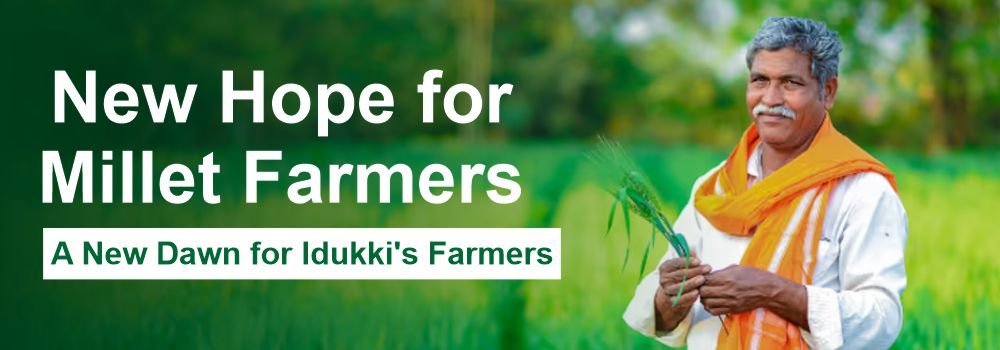
A promising new chapter in millet cultivation has begun in Idukki, with a trial conducted at Aduvilanthankudy, a Muthuvan tribal settlement in Poopara village. Led by the Krishi Vigyan Kendra (KVK), Idukki, under the Tribal Sub Plan scheme, the trial introduced three innovative millet varieties—GPU 67, CFMV1, and ATL1—developed by research centers across India. These varieties have been cultivated in Idukki for the first time, marking a significant development for the region's agricultural community.
ATL1: A Game-Changer for Millet Farming
Among the varieties tested, ATL1 has emerged as a standout due to its early maturity, high yield, and exceptional drought tolerance. While traditional millet varieties take up to 180 days to mature, ATL1 matures in just 120 days, significantly reducing the farming cycle. This accelerated growth not only allows farmers to optimize their resources but also increases overall productivity in Idukki’s challenging climatic conditions.
Impact on Tribal Farmers
The introduction of ATL1 has been particularly well-received by local tribal farmers. S.P. Venkidachalam, a participant in the trial, shared his enthusiasm: “This variety gives a much higher yield than the traditional varieties we cultivate. We plan to expand its cultivation in the next season while continuing with our traditional millet farming.” He also called on the government to extend the MNREGA scheme to support tribal farmers involved in millet cultivation. Currently, 28 farmers in the settlement are growing millets, and more are expected to join as the new varieties prove successful.
© 2023 - 2026 Millets News. All rights reserved.